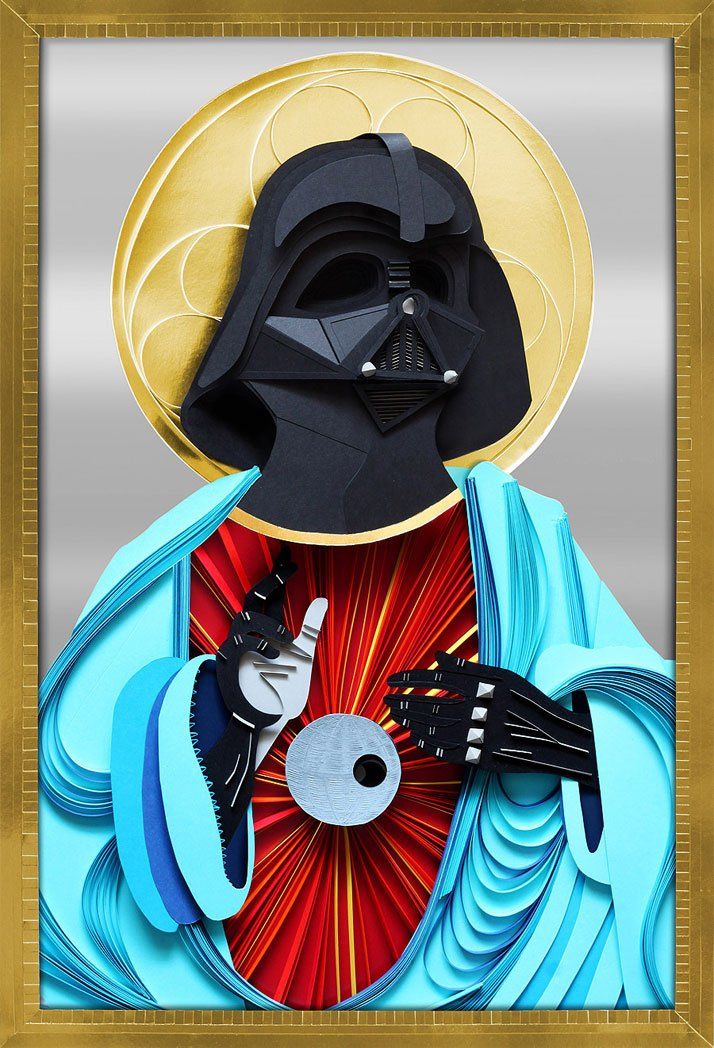Think Like Vader: Writing Inside Characters
The author needs to get into the heads of her characters and take on that sense of self-righteousness. The author needs to pursue the character’s trust in her own goodness.

I’ve been hard at work on two different novels these past couple of months. (Obviously, I’ve not been blogging.) In doing so, I’ve started to think about the way I feel about my characters.
I do not believe characters need to be likable for a story to be successful. Some of my favorite shows and movies have characters who are universally repugnant. For example, in Arrested Development, just about every character is awful and has no real redeeming qualities. With the potential exception of George Michael—do we remember how this show introduced us to the innocent face of little Michael Cera?—every character is enormously self-centered. Even Michael Bluth, the character we think we’re going to connect with, turns out to be a pretty awful person. The same thing happens in Breaking Bad. By the time we get to the end of the show, Walter White has become a monster, and we’re no longer really rooting for him.
I do think, however, that the author needs to get inside the character, to think from the character’s point-of-view, and to find a way to empathize with the character. As we read a story, we may find a character off-putting and terrible, but we need to believe the character is earnest in her worldview. Most people see themselves not only as the center of the universe but also as righteous. We believe we’re doing the right thing and how dare those other folks not see it our way!
The author needs to get into the heads of her characters and take on that sense of self-righteousness. The author needs to be earnest in her pursuit of the character’s belief in her own goodness.
I call this “writing inside the character.”
Even when we are writing in third person, we are often close to a single character, gaining insight into the character’s inner experience. To do this well, we need to be able to put ourselves into the character’s shoes, to see the world from their perspective, to put on those character-colored glasses that allow us to look out into the universe and understand things in the unique way that this particular person would.
For me, this begins with the aforementioned sense of self-righteousness. Though I, the author, may know that what this villain is about to do is awful, the character will need to justify it. How can I write about that experience with enough empathy to get into the character’s mind and express it in that self-righteous, justifying way?
I don’t know.
To be honest, it’s just one of those pieces of magic that sometimes happens with writing. But it also takes practice and attentiveness.
Here’s something to practice:
Create a villain. You can, if you wish, use a villain from a TV show or movie or book. For example, you might grab a quintessential villain like Darth Vader. Choose an event from the villain’s life where he or she will perpetrate some awful terrible evil. With Darth Vader, for example, you might choose a moment when he decides to hunt down some Jedi. How will he justify this action to himself? The audience, of course, knows this is murder, and it’s terrible. But for Darth Vader, it’s part of bringing about some kind of good: order, discipline, the greatness of the Sith.
Write out an internal monologue in which the character puts words to these justifications and this self-righteous attitude.
- How does it feel to get inside the character’s head?
- How does it feel to justify awful actions?